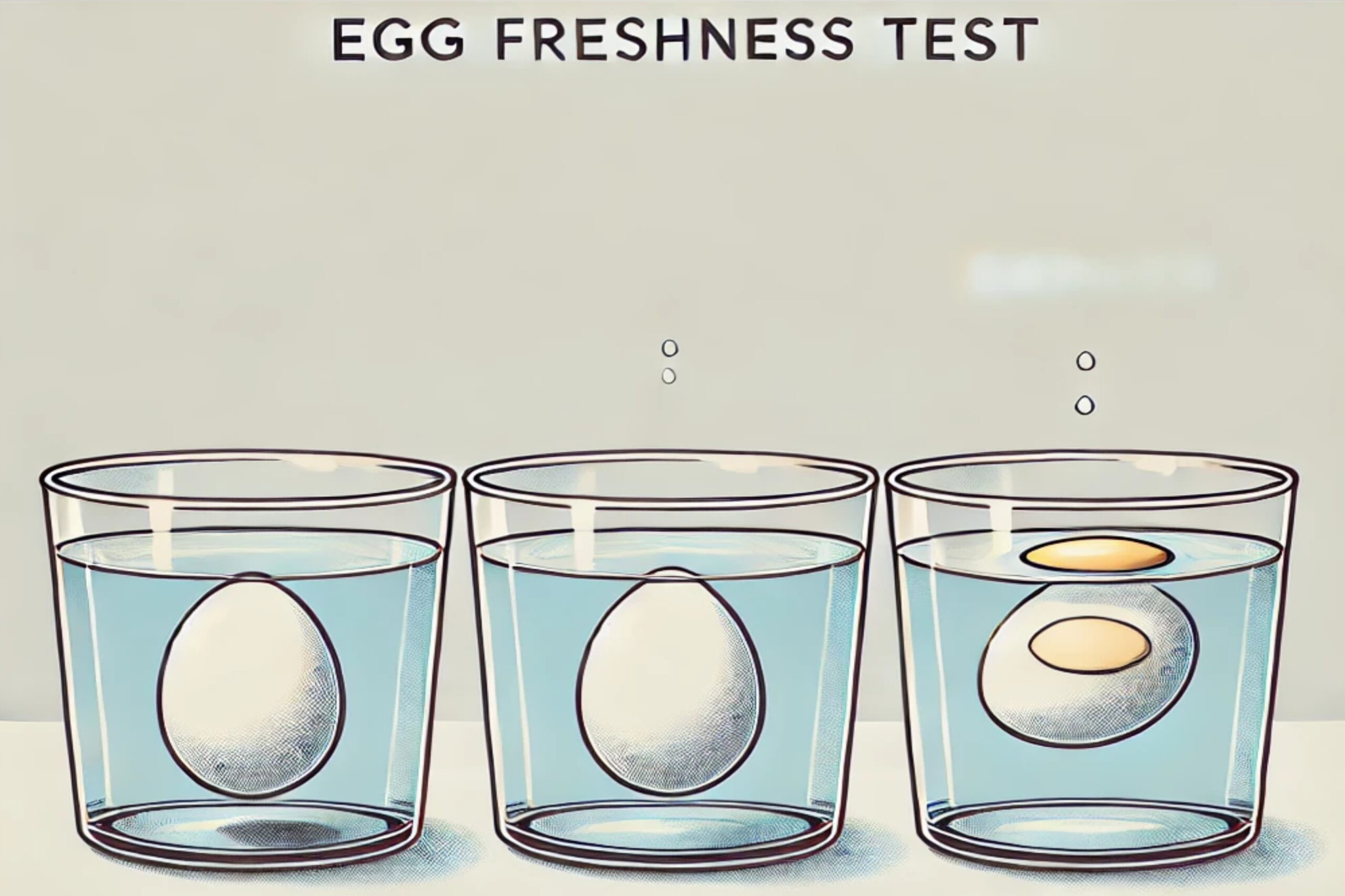The Truth About Egg Freshness and Health Benefits: What You Need to Know
Eggs are often considered one of the best sources of protein, valued for their versatility in cooking and nutritional benefits. They can be incorporated into almost any dish, making them both delicious and healthy. Eggs are often referred to as a “wonder food” due to their fluffiness, rich texture, and ability to complement a variety of culinary creations. However, when it comes to determining the freshness of eggs, there are several misconceptions and methods worth discussing.
What Does the U.S. Department of Agriculture (USDA) Say?
Contrary to common belief, eggs that float in water are not necessarily bad or unsafe to eat. According to the USDA ( United State Department of Agriculture ), the floating egg simply indicates that the air sac has expanded as moisture and air have escaped over time. This is a sign of aging, but not necessarily spoilage. Such eggs are still safe to eat, though their quality may have declined.
However, the USDA recommends cracking the egg open and examining it for any unusual odor or appearance. A foul smell or strange discoloration can indicate that the egg has spoiled and in such cases, it should be discarded. The key factors in determining whether an egg is safe to eat are its smell, appearance, and the conditions under which it was stored.
How to Test the Freshness of an Egg
One popular method for testing egg freshness is the water test. Here’s how it works: Simply place an egg in a bowl of water. If the egg is fresh, it will sink and lay flat at the bottom. If the egg is older, it will sink but may stand upright or float. This occurs because as eggs age, the moisture and air inside the shell evaporate, causing the air sac to expand. While some people assume that floating eggs are spoiled, this is not always the case.
The Truth About Cholesterol and Egg Consumption
For years, eggs were often criticized for their cholesterol content, but recent research suggests that eating eggs does not significantly affect cholesterol levels in most individuals. A study presented at the American College of Cardiology’s annual scientific session concluded that eggs do not have a major impact on blood cholesterol when consumed in moderation.
Moderation is Key
Despite the benefits of eggs, moderation is still recommended. A study involving 140 patients with cardiovascular risk factors showed that consuming fewer than two eggs per week had no adverse effects on cholesterol levels compared to consuming 12 cooked eggs per week. While there is no significant risk associated with eating eggs, it is always advisable to consume them in moderation, particularly if you have underlying health conditions. If you have concerns about cholesterol or heart health, it’s a good idea to consult your healthcare provider for personalized advice.
In summary, eggs remain a nutrient-dense food that can be enjoyed as part of a healthy diet. Despite some misconceptions about floating eggs, the USDA assures us that they are still safe to eat as long as they are not visibly spoiled or foul-smelling. When it comes to cholesterol, recent studies indicate that moderate egg consumption is not likely to harm heart health. As always, it’s best to consume eggs in moderation and follow dietary recommendations from your healthcare provider.
By following these simple guidelines, you can enjoy the many benefits of eggs without worrying about their safety or nutritional impact.

